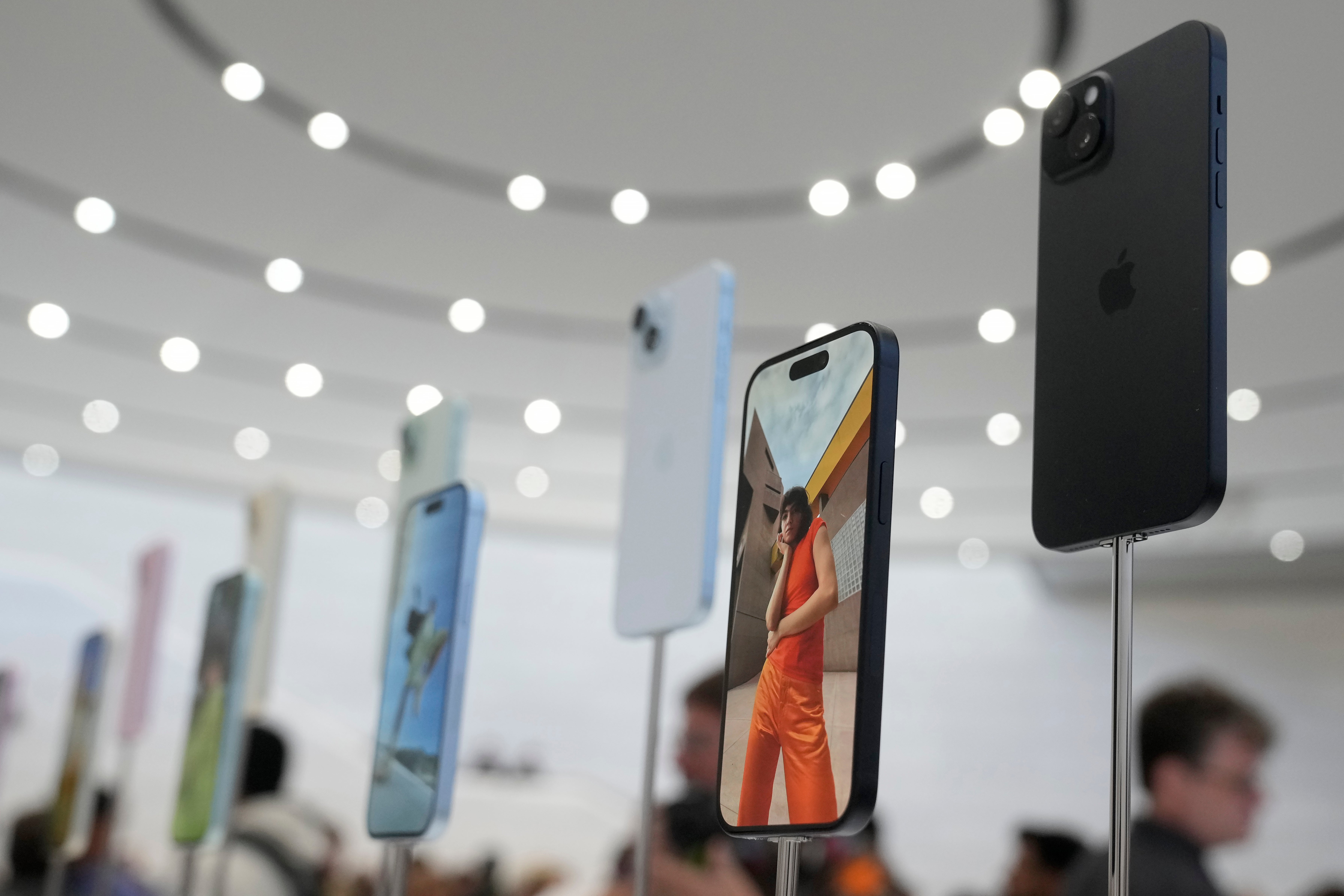Apple faces a fight with the US. The outcome could change your iPhone
A new antitrust lawsuit takes issue with some of the central ways that the smartphone works
Apple is facing one of the toughest tests in its history after the US government filed a lawsuit accusing the tech giant of creating an illegal monopoly that cuts off competition for its iPhone.
The antitrust action, filed in federal court in New Jersey, alleges the company has used the tight control it keeps over its smartphone ecosystem to “engage in a broad, sustained, and illegal course of conduct”.
That has led to the iPhone becoming worse in multiple ways, the Justice Department says. “Consumers should not have to pay higher prices because companies violate the antitrust laws,” attorney general Merrick Garland said in a statement on Thursday. “If left unchallenged, Apple will only continue to strengthen its smartphone monopoly.”

The criticism and the announcement could be momentous for Apple, which might be forced to change its operations in fundamental ways. But it could also be significant for the company’s users, given they are the focus of the lawsuit itself.
What is the problem?
The lawsuit relates to Apple’s controls over its own products – and argues that it has too much of it. It has used that control to boost its own power at the expense of its customers and others, it argues.
The US government pointed to a host of places where that is the case. Apple’s own messages app, for instance, works better with other iPhones; users can only use its own Wallet app when tapping to pay; the Apple Watch works more seamlessly with the iPhone than any other smartwatch.
That all adds up to an unfair competition, the government argues. Developers are not able to make apps to compete with those made by Apple, and the same problem is faced by those who make third-party hardware such as Bluetooth trackers and smartwatches.
But it also means that customers lose out, the lawsuit argues, because they pay higher prices for less features.
What does Apple say?
Apple has said that it will fight the case. But its statement made it clear that it feels the future of its products hang in the balance.
“At Apple, we innovate every day to make technology people love, designing products that work seamlessly together, protect people’s privacy and security, and create a magical experience for our users,” it said. “This lawsuit threatens who we are and the principles that set Apple products apart in fiercely competitive markets.
“If successful, it would hinder our ability to create the kind of technology people expect from Apple, where hardware, software, and services intersect. It would also set a dangerous precedent, empowering government to take a heavy hand in designing people’s technology.
“We believe this lawsuit is wrong on the facts and the law, and we will vigorously defend against it.”
What could happen now?
The lawsuit asks for “relief”, including anything needed to “cure any anticompetitive harm”. In short, a win for the US government would be a legal ruling that forces Apple to stop engaging in the behaviour that has led to the lawsuit in the first place.
That could mean a whole host of things. But, by way of example, it could require that the iMessages app support the missing features – which would be possible.
In fact, Apple has already been working to stem some of the objections, presumably because of the growing amount of regulatory scrutiny. Earlier this year, for instance, it started allowing game streaming apps in the app store – one of the US government’s many objections.
What has happened already?
In Europe, some of this has already happened. The Digital Markets Act, which recently went into effect, was born out of some of the same criticisms and attempted to address them in ways that the US might echo.
The biggest change for Apple under those rules is that it has been forced to allow alternative app marketplaces, so that third-party developers can set up their own app stores. Apple has complied with that but only in limited ways – it is only available in Europe, and even there some developers have complained that Apple should have done more.
That is perhaps the most dramatic such measure. But many countries around the world have imposed new rules on Apple in recent years.
Join our commenting forum
Join thought-provoking conversations, follow other Independent readers and see their replies
Comments

Bookmark popover
Removed from bookmarks